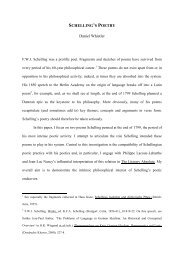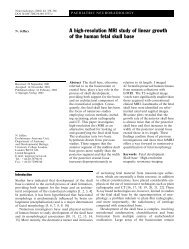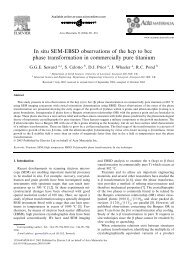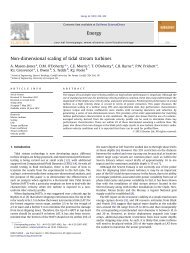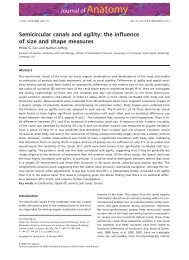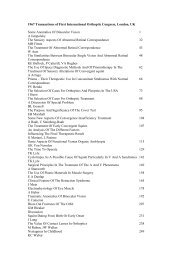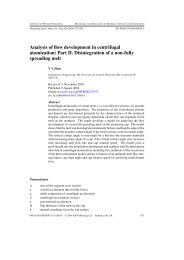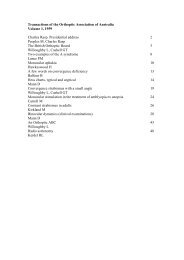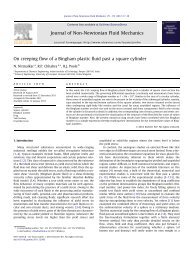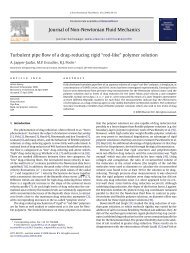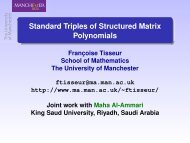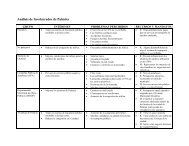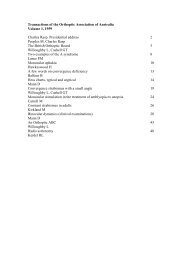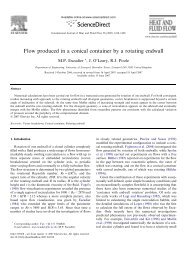The Discipline of Pious Reason: Goethe, Herder, Kant Daniel ...
The Discipline of Pious Reason: Goethe, Herder, Kant Daniel ...
The Discipline of Pious Reason: Goethe, Herder, Kant Daniel ...
Create successful ePaper yourself
Turn your PDF publications into a flip-book with our unique Google optimized e-Paper software.
human/God relation in the Metaphysik der Sitten and ‘ethical neo-Spinozism’. <strong>Kant</strong><br />
too attacks the prevalent self-destructive piety preserved in neoplatonic thought in<br />
favour <strong>of</strong> an alternative based on friendship. What is more, <strong>Kant</strong> stresses that the<br />
disinterested quality <strong>of</strong> this alternative; he insists that his new form <strong>of</strong> piety keeps its<br />
distance from God.<br />
Indeed, the parallels between <strong>Herder</strong> and <strong>Kant</strong>’s alternative become even more<br />
noteworthy if one bears in mind, what Blumenberg has dubbed, the ‘late anti-<br />
Platonism’ <strong>of</strong> <strong>Kant</strong>’s thought (1987, p. 56). <strong>Kant</strong>’s 1796 essay, On a Recently<br />
Prominent Tone <strong>of</strong> Superiority in Philosophy, is evidence <strong>of</strong> this. It responds to the<br />
ever more prominent neoplatonic renaissance <strong>of</strong> late eighteenth century Germany, and<br />
berates ‘the new Platonists’ and their ‘latest mystico-Platonic idiom’ (2002, 8:399). 19<br />
Directly, <strong>Kant</strong> is reacting to J.G. Schlosser and F.L. Stolberg, yet, more generally, this<br />
work is a ‘polemic against a contemporary neoplatonism’ (Blumenberg, 1987, p. 53),<br />
a reaction against the neoplatonic renaissance in general. Like <strong>Herder</strong> and <strong>Goethe</strong><br />
before him, <strong>Kant</strong> is uneasy with his era’s increasing use <strong>of</strong> neoplatonic philosophy<br />
and turns on it.<br />
While the concerns <strong>of</strong> On a Recently Prominent Tone are for the most part<br />
epistemological, this turn away from Plato is also prevalent (if implicit) in the<br />
Metaphysik der Sitten and other late ethical writings. It results in an obsessive<br />
concern for limits—especially limits on love and piety. Moreover, it also results in an<br />
alternative model for ethics based on friendship.<br />
[B] <strong>The</strong> Trouble with Love



